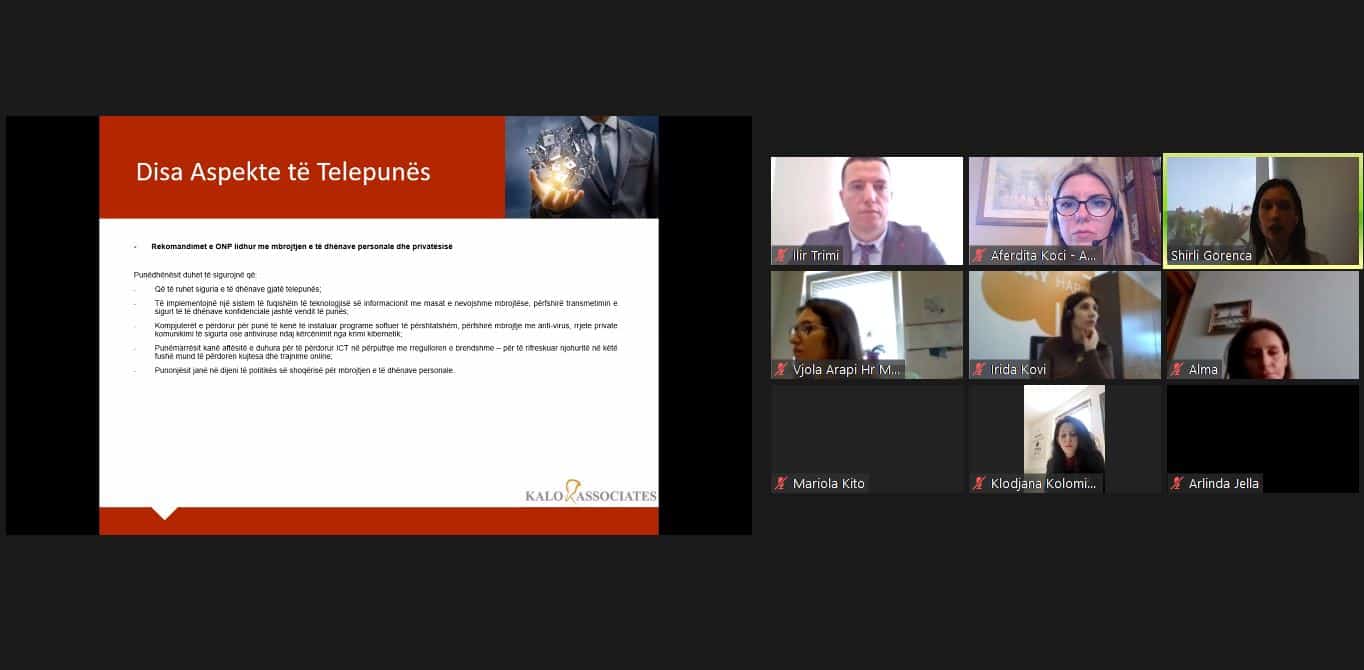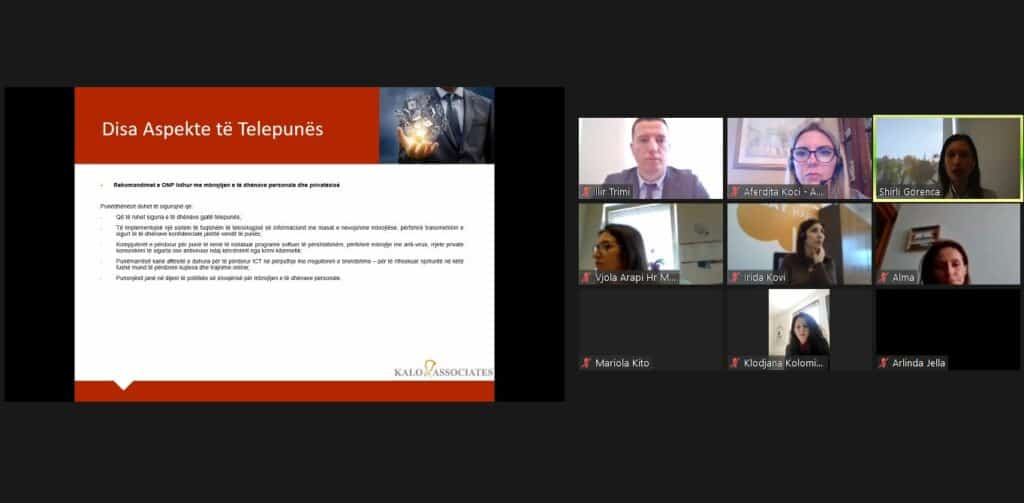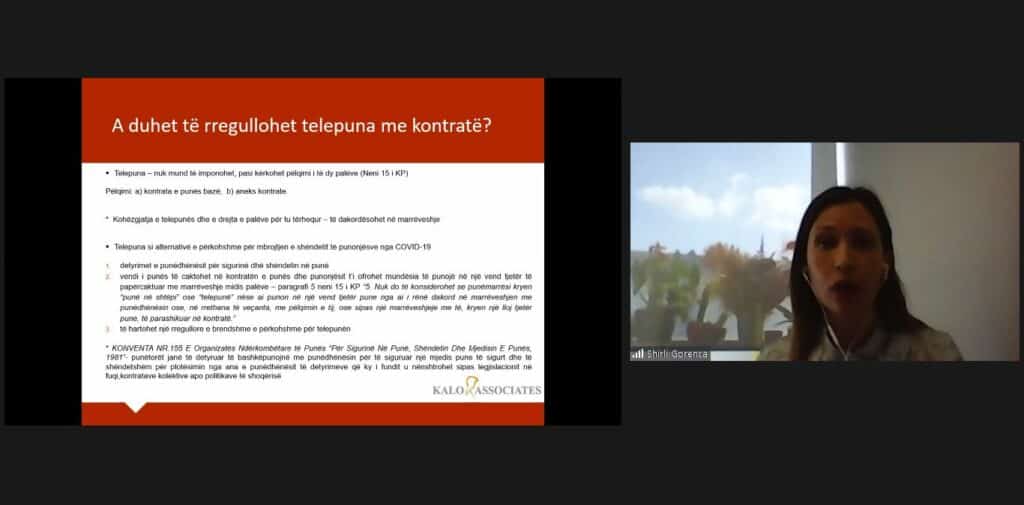How remote work is regulated by law
HR Open Week’s fourth day focused on “Legal Challenges of Telework” as a topic, with Shirli Gorenca, a legal expert with Kalo & Associates, explaining to AmCham members the most efficient ways of working remotely and how that particular working relationship is legally regulated.
Covid-19 and the challenges it brought led to a new normal in doing business and managing employment relationships. Working from home became an imperative of the time, and it seems that Albania’s Labor Code already had provisions to deal with this alternative working arrangement.
Specifically, the Labor Code’s Article 15 legally regulates a telework contract, thus recognizing the power of information technology and its impact on business development. The Labor Code also has special provisions that regulate every part of the remote employment relationship, starting from working hours and continuing with the obligations of the employer and the employee in this virtual workspace.
Ms. Gorenca provided AmCham members with information about the obligations the employer has in creating appropriate working conditions, providing working tools as well as having a clear definition of schedules and days off. The regulation of the virtual employment relationship also spells out employees’ obligations and rights, which are set in the employment contract. These obligate the employee to respect the schedules, agreements and other employment criteria set out in the contract. The remote work relationship, or telework as it is also known, is also subject to regulations under Albania’s personal data protection law. The Law on Personal Data Protection and related bylaws and guidelines on “processing of personal data during telework, in the framework of measures against Covid-19,” adopted in February 2021, clearly define the practical measures that can be taken to keep personal data secure and confidential while work is taking place outside the office. These also define how information security management systems are certified in order to protect personal data.



